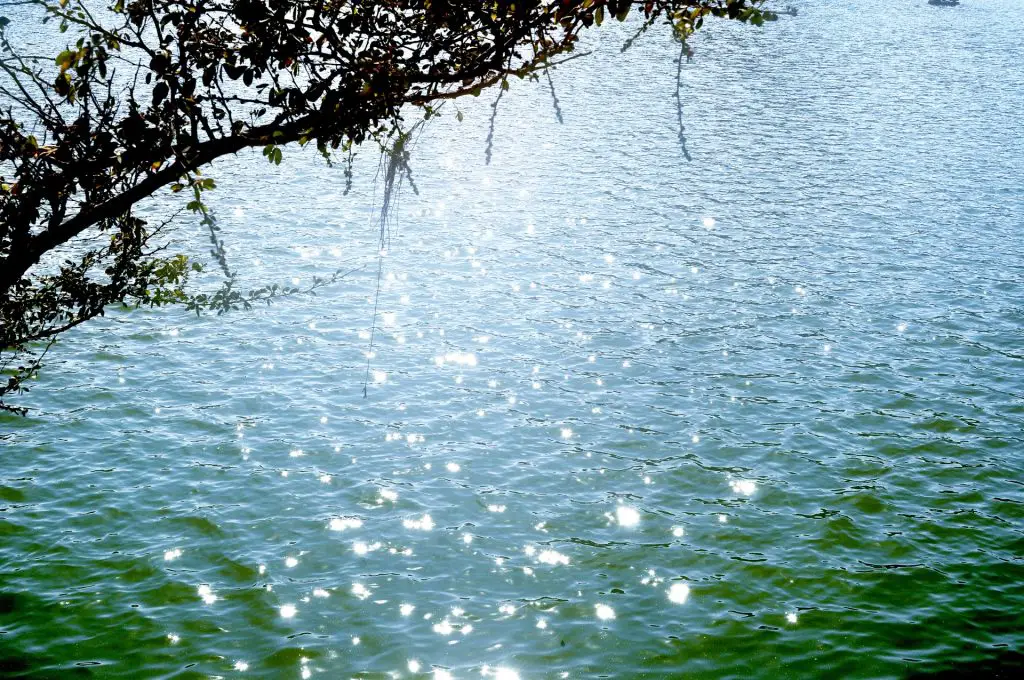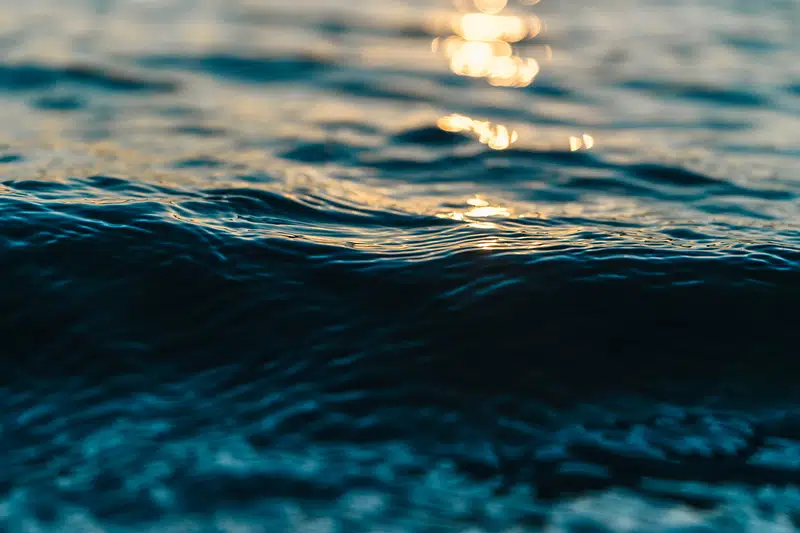In Japan, names are like little stories. They tell us about nature, feelings, and sometimes about water. Japanese Names That Mean Water are exciting. Water is essential in Japan. It is in their beautiful rivers, lakes, and the sea that surrounds the islands. Water names are unique because water is a big part of life. It can be calm, like a quiet pond, or substantial, like a big wave.
When parents pick japanese names meaning water for their child, they think about everything. They might hope their child is calm and gentle or solid and complimentary. These water names sound pretty and also mean something special. They show how nature is a big part of life in Japan. Let’s dive into these water names and discover what they tell us.
Unisex Japanese Names Meaning Water
Here are 30 unisex Japanese names that have meanings related to water.
Mizu (水) – Means “water.”
Minato (湊) – Means “harbor” or “port,” a place where water is central.
Kai (海) – Translates to “sea” or “ocean.”
Sui (粋) – A name meaning “water” in a more elegant sense.
Ame (雨) – Means “rain.”
Umi (海) – Another name for “sea” or “ocean.”
Kawa (川) – Means “river.”
Izumi (泉) – Translates to “spring” or “fountain.”
Nagisa (渚) – Means “shore” or “beach.”
Ryo (涼) – This means “cool,” often associated with cool water.
Hama (浜) – Means “beach” or “seashore.”
Name (波) – Translates to “wave.”
Shio (潮) – Means “tide.”
Taki (滝) – Means “waterfall.”

Mizuki (水木) – Combines “mizu” (water) and “ki” (tree), which can mean water’s nurturing aspect.
Kaito (海斗) – With “kai” (sea) and “to” (fight), it can mean a robust and oceanic spirit.
Rei (霊) – While often meaning “spirit,” it can also relate to the spirituality of water.
Sango (珊瑚) – This means “coral,” found in the ocean.
Minami (南) – Means “south,” often associated with warmer ocean currents.
Mizuhiko (瑞彦) – From “mizu” (water) and “hiko” (boy), a common unisex ending.
Tsukasa (司) – Can mean “director of water,” a leader-like water name.
Umiko (海子) – Combines “umi” (sea) and “ko” (child), a typical unisex ending.
Sora (空) – Primarily means “sky,” but also relates to the ocean’s vastness.
Haru (春) – This means “spring,” a season where water plays a key role.
Yuki (雪) – Means “snow,” a form of water.
Ryū (流) – Means “flow” or “stream.”
Asa (浅) – This means “shallow,” and is often used for gentle waters.
Fumi (文) – Can mean “writing,” but also “sailor’s log,” linking it to the sea.
Seki (碧) – Means “blue,” like the color of clear water.
Mizuto (水都) – Combines “mizu” (water) and “to” (capital), symbolizing a place rich in water.
Male Japanese Names Meaning Water
Here are 30 male Japanese name meaning water.
Kaito (海斗) – Combines “kai” (sea) and “to” (fight), symbolizing a strong spirit of the sea.
Minato (港) – Means “harbor” or “port,” relating to water bodies.
Kai (海) – Means “sea” or “ocean.”
Ryū (竜) – Often means “dragon,” but is also associated with “dragon of the sea.”
Nagisa (渚) – Translates to “shore” or “waterside.”
Haru (波瑠) – With “ha” (wave) and “ru” (gem), signifying the treasure of the sea.
Sora (宙) – While it means “sky,” it also suggests the vastness of an ocean.
Taki (滝) – Means “waterfall.”
Umi (海) – Another name meaning “sea” or “ocean.”
Ryo (涼) – Signifies “cool,” like the coolness of water.
Nami (波) – Means “wave.”

Mizuho (瑞穂) – Combines “mizu” (water) and “ho” (ear of grain), suggesting nourishment like water.
Kawa (川) – Means “river.”
Shin (慎) – In specific contexts, it can mean “deep water.”
Rei (冷) – Often means “cold,” similar to the chill of water.
Kazuya (風弥) – While “kaze” means wind, it can also imply the movement of water.
Hiro (洋) – Means “ocean” in a broad, expansive sense.
Issei (一星) – Implies “one star,” with poetic association to reflections on water.
Manato (真渚人) – Combines “ma” (truth), “nato” (shore), and “to” (person).
Yū (湧) – Means “bubble up” or “spring forth,” like water from a source.
Sho (翔) – While meaning “soar,” it can represent the flight over water bodies.
Tsukasa (司) – In some contexts, it can mean “overseer of water.”
Mizuki (水輝) – Combines “mizu” (water) and “ki” (shine), meaning shining water.
Haku (白) – Often means “white,” but can imply the purity of water.
Itsuki (樹) – In some contexts, it can represent a “tree by the water.”
Asahi (旭) – The meaning “morning sun” can suggest the sun over water.
Yoshi (吉) – Often means “good luck,” but in a water context, it implies good flow.
Hayate (颯) – Means “swift wind,” but can also represent the movement of water.
Kazumi (一海) – Combines “kazu” (one) and “mi” (sea), symbolizing unity with the sea.
Takumi (巧) – Often means “skillful,” but can suggest skill like water flow.
Check Also: Japanese Names That Mean Star
30+ Female Japanese Names that Mean Water
Mizuho (瑞穂) – Combines “mizu” (water) and “ho” (ear of grain), symbolizing abundance like water.
Minami (南) – Often means “south,” but can also signify southern seas.
Umi (海) – Means “sea” or “ocean.”
Nami (波) – Means “wave.”
Kaiko (海子) – Combines “kai” (sea) and “ko” (child), meaning child of the sea.
Misaki (美咲) – Can mean “beautiful bloom,” but “mi” also suggests “water.”
Rin (凛) – Often means “dignified,” but can imply the grace of flowing water.
Shizuku (雫) – Means “droplet,” as of water.
Kaiyo (海洋) – Means “ocean.”
Nagisa (渚) – Translates to “shore” or “beach.”
Haruka (遥) – While it means “distant,” it can imply the ocean’s vastness.
Aoi (葵) – Often means “hollyhock,” but can be associated with water through poetry.
Marina (真里奈) – Similar to the English name “Marina,” suggesting the sea.
Sui (翠) – Can mean “jade,” but is also associated with water’s clarity.
Hama (浜) – Means “beach” or “seashore.”
Mio (澪) – Signifies “waterway” or “channel.”
Kawa (川) – Means “river.”
Izumi (泉) – Translates to “spring” or “fountain.”
Taki (瀧) – Means “waterfall.”
Ami (雨美) – Combines “ame” (rain) and “mi” (beauty), meaning beautiful rain.
Sango (珊瑚) – This means “coral,” found in the ocean.
Kana (佳奈) – Often means “good,” but in the context of water, it suggests the beauty of water.
Asami (麻美) – While “asa” can mean “hemp,” it can also be associated with morning dew.
Yukari (由香里) – While it has various meanings, it can be linked to the tranquillity of water.
Yura (由良) – Often means “reason,” but can imply the flow and reason of water.
Hina (陽菜) – While it means “sunlight vegetables,” it can suggest growth with water.
Riko (梨子) – Often means “pear child,” but can be associated with water’s nourishment.
Ayaka (彩香) – While it means “color and fragrance,” it can suggest the vibrant life around water.
Haru (春) – This means “spring,” a season where water plays a key role.
Yuki (雪) – Means “snow,” a form of water.
Umiko (海子) – Combines “umi” (sea) and “ko” (child), meaning child of the sea.
Saya (沙耶) – Can mean “sand night,” implying the beaches by the sea.
Check Also: Japanese Names Meaning Moon
FAQs about Water Names in Japanese
1. Why do Japanese names have meanings about water?
Water is essential in Japan, so some names discuss the sea, rivers, and rain. These names are like a little story about nature.
2. Can boys and girls both have water names in Japan?
Yes, many water names can be for both boys and girls. In Japan, some names are suitable for everyone.
3. What do water names mean for Japanese people?
These names are unique. They can mean hope for someone to be strong like a wave, calm like a pond, or free like the ocean.
4. Are water names popular in Japan?
Yes, these names are popular because people in Japan like names that remind them of beautiful things in nature, like water.
Conclusion
Japanese names that mean water are exceptional. They tell us about how much people in Japan love and respect nature, especially water. These names are like wishes for someone to have good qualities, just like nature’s different forms of water.
